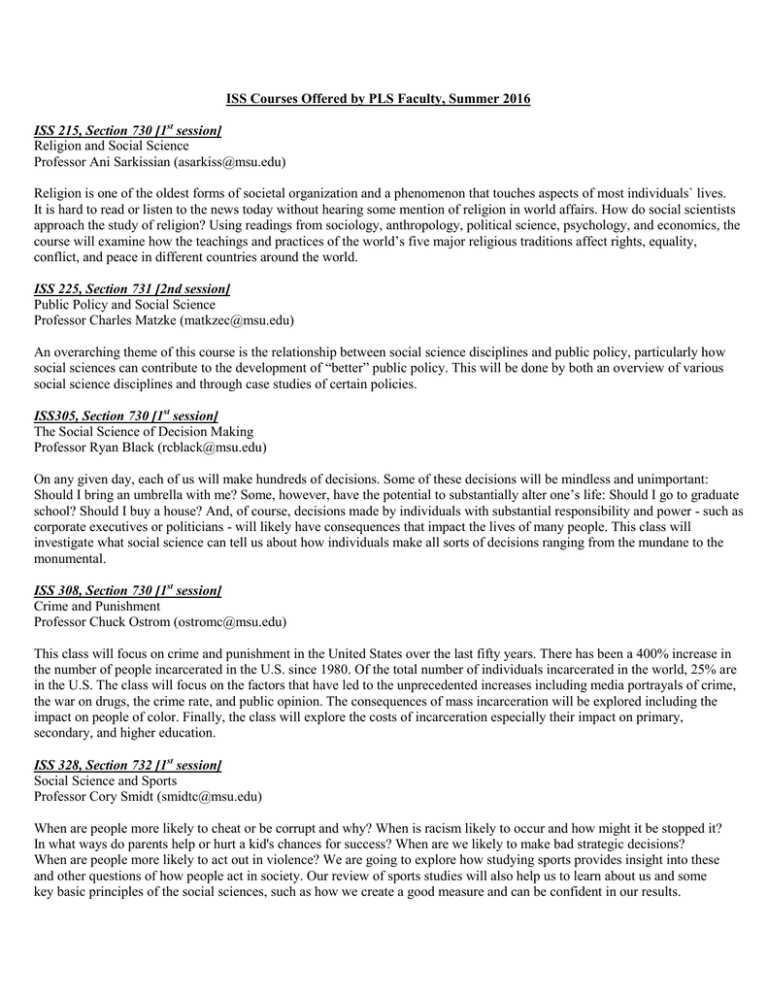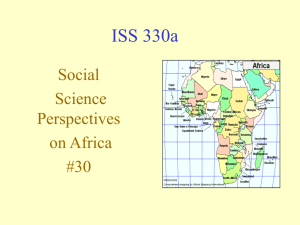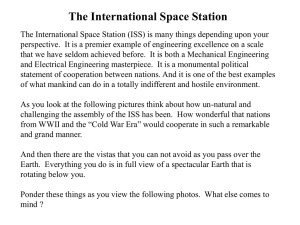ISS Courses Offered by PLS Faculty, Summer 2016
advertisement

ISS Courses Offered by PLS Faculty, Summer 2016 ISS 215, Section 730 [1st session] Religion and Social Science Professor Ani Sarkissian (asarkiss@msu.edu) Religion is one of the oldest forms of societal organization and a phenomenon that touches aspects of most individuals` lives. It is hard to read or listen to the news today without hearing some mention of religion in world affairs. How do social scientists approach the study of religion? Using readings from sociology, anthropology, political science, psychology, and economics, the course will examine how the teachings and practices of the world’s five major religious traditions affect rights, equality, conflict, and peace in different countries around the world. ISS 225, Section 731 [2nd session] Public Policy and Social Science Professor Charles Matzke (matkzec@msu.edu) An overarching theme of this course is the relationship between social science disciplines and public policy, particularly how social sciences can contribute to the development of “better” public policy. This will be done by both an overview of various social science disciplines and through case studies of certain policies. ISS305, Section 730 [1st session] The Social Science of Decision Making Professor Ryan Black (rcblack@msu.edu) On any given day, each of us will make hundreds of decisions. Some of these decisions will be mindless and unimportant: Should I bring an umbrella with me? Some, however, have the potential to substantially alter one’s life: Should I go to graduate school? Should I buy a house? And, of course, decisions made by individuals with substantial responsibility and power - such as corporate executives or politicians - will likely have consequences that impact the lives of many people. This class will investigate what social science can tell us about how individuals make all sorts of decisions ranging from the mundane to the monumental. ISS 308, Section 730 [1st session] Crime and Punishment Professor Chuck Ostrom (ostromc@msu.edu) This class will focus on crime and punishment in the United States over the last fifty years. There has been a 400% increase in the number of people incarcerated in the U.S. since 1980. Of the total number of individuals incarcerated in the world, 25% are in the U.S. The class will focus on the factors that have led to the unprecedented increases including media portrayals of crime, the war on drugs, the crime rate, and public opinion. The consequences of mass incarceration will be explored including the impact on people of color. Finally, the class will explore the costs of incarceration especially their impact on primary, secondary, and higher education. ISS 328, Section 732 [1st session] Social Science and Sports Professor Cory Smidt (smidtc@msu.edu) When are people more likely to cheat or be corrupt and why? When is racism likely to occur and how might it be stopped it? In what ways do parents help or hurt a kid's chances for success? When are we likely to make bad strategic decisions? When are people more likely to act out in violence? We are going to explore how studying sports provides insight into these and other questions of how people act in society. Our review of sports studies will also help us to learn about us and some key basic principles of the social sciences, such as how we create a good measure and can be confident in our results.

